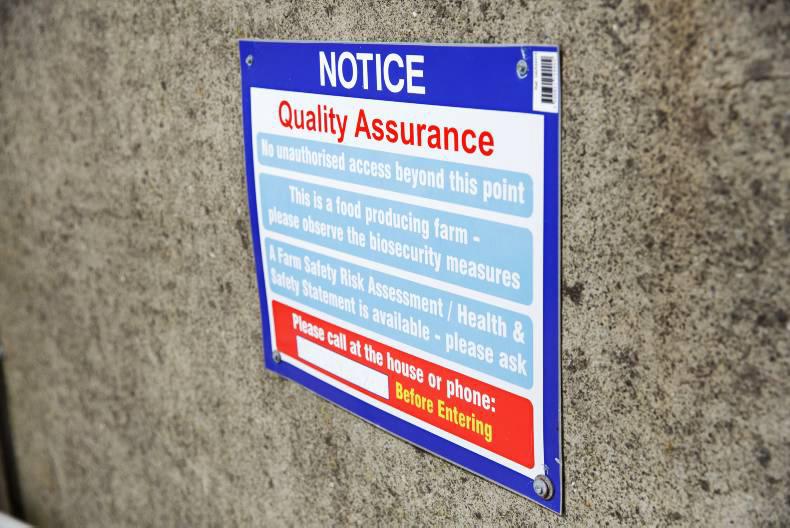Last week the herd worming was completed and the calves received their blackleg booster shots. Operating in three yards with different standard facilities means a different approach has to be taken in each place.
Over the last two winters, stock board was placed on the gates leading into the crush and around the holding pens in the owned yards. It helps guide the cattle by darkening an escape route. This is a relatively cheap material and was attached to gates using cable ties as they’re cheaper and easier to replace than bolts or drive screws, with the added bonus of not weakening the gate in any way.
Extra gates will be hung in the rented yard so we can put cattle through the crush rather than the current setup which requires animals to reverse out. Making this change will help reduce risk and stress on both man and beast.
Facilities are only part of the equation in animal handling. Cattle temperament has a large part to play and in a suckler herd that can vary greatly. The extra emphasis placed on culling out livelier animals here over the last few years is having a significant impact on making any yard work easier and much safer.
Dangerous cattle have the ability to put you in hospital; a wheelchair or a coffin and aren’t worth dealing with. Farm safety is about risk reduction as accidents will happen and it’s not always physical risks. Not everyone can handle extra debt or workload the same way. People react to it in various ways, but it’s important to be aware of any signs of mental stress among your neighbours. That’s why National Farm Safety Week is so important.
The financial situation in which some farmers found themselves in the first half of 2016 has placed them in a more pressurised position. At present, beef price is ahead of milk and has been for a few months.
In April, factories were paying around €4/kg for beef. In west Cork, the co-ops paid a base milk price for 1kg milk solids that was 60c/kg behind this.
According to the Irish Farmers Journal April milk price league, some milk processors were a full €1/kg back on factory steer price. It won’t stay that way, but it’s a position some farmers aren’t accustomed to it.
Harsh as it might sound, this may be a good time for a poor milk price to occur. It’s providing a reality check and in the long run may save some farmers from excess debt and potentially losing their farms.
Knowledge transfer
The extension of the deadline for the new Knowledge Transfer scheme is no surprise. There must have been some amount of messing went on in the BTAP discussion group scheme to justify some of the regulations in the new KT discussion group programme.
We had the “was it worth it?” debate in our group and friends in existing dairy discussion groups are saying they’ve had the same debate.
Some of the restrictions are ludicrous, but it could be argued that so is paying farmers to improve their businesses. Those involved in contract-rearing are unable to qualify for payment as they don’t qualify as beef farmers because they didn’t have two animals of a beef breed in 2015 and aren’t considered dairy farmers as they don’t supply milk.
To the letter of the law, students on work experience can’t attend discussion group meetings alongside host farmers. In the top end of groups this is denying students access to one of the best forms of knowledge transfer there is – farmer-to-farmer learning.






 This is a subscriber-only article
This is a subscriber-only article










SHARING OPTIONS: